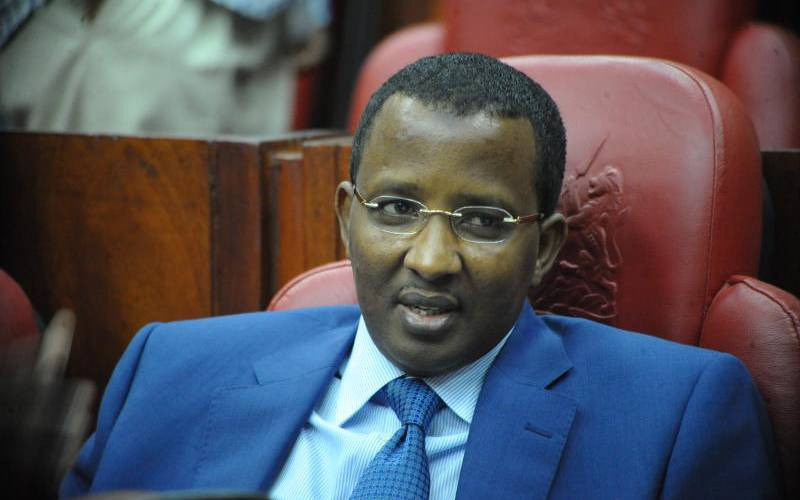There is good news in the offing for Orthopedic and mental health patients in Nyamira County and the larger Gusii region. The project was borne after fruitful discussions held last year courtesy of the Kenya patriotic Movement (KEPAM), a diaspora lobby group based in the United States.
The discussions held in The state of Wyoming comprised a delegation from Nyamira County led by the deputy governor Mr. Amos Kimwomi Nyaribo. In attendance was the Chief Executive officer of Precision Prosthetics and Orthotics (POW) Mr. Kamil Leman, Dr. Jiri Danczik of Wyoming Behavior health, and a Kenyan Psychiatric consultant Mr. Tom Mogondo.
The director of Medical Services in Nyamira County Dr. Jack Magara, the President of KEPAM, Mr. Joseph Lister Nyaringo, and a Kenyan consultant on medical tourism, Mr. Tom Otochi, participated in the discussions held in the City of Casper, Wyoming.
The success of the project will require a multipartite approach from relevant stakeholders. Key in the list is the Ministry of Health and the County government of Nyamira. The partners from the US wants to start the project before the end of February 2020.
There is a ray of hope for persons with skeletal impairments-those with deformities of the joints, bones, muscles, ligaments, tendons, and nerves in Nyamira and the surrounding regions of Kericho, Narok, Bomet, Migori and eventually, the whole of Kenya will have a chance to afford a smile.
Any goodwill from overseas, whether in the form of direct investment, philanthropy, transfer of technology, knowledge, and know-how, or exchange of skill or talent requires the host country or government to provide a flexible environment for maximum benefits to the deserving population.
The ambitious project in Nyamira, if well nurtured and supported by relevant stakeholders, will be replicated to other parts of Kenya to benefit the masses.
Prosthetics and orthotics
The CEO of POW Mr. Kamil Leman is a board-certified Prosthetist and orthotist in the US. He has more than 20 years of experience in the field. He is prepared to rekindle hopes by enabling people to walk. The Prosthetist and orthotist take the pleasure of helping people.
POW has helped many US locals as well as undertaking charitable causes in developing countries to repair broken limbs of needy individuals to boost their mobility. The company participated in the Haiti Relief Mission following the devastating 2010 earthquake as well as playing a big role in the One World Unity Project in Guatemala.
“This is just the beginning. As an organization that brings together Kenyans domiciled abroad, we are exploring many avenues to change lives through networking and building synergy with friends of Kenya abroad.” Says Mr. Nyaringo, President of KEPAM.
The project will also strive to boost the transfer of skills to Kenyan locals. Trainees will get the opportunity to improve their skills in order to do the job independently to transform lives.
It must be remembered that the proliferation of motorcycles as a cost-effective mode of transportation in urban and rural Kenya has culminated in many road accidents. Many of the victims of these accidents end up losing their lives while others sustain serious injuries leading to limb amputations. This is the population the POW project will urgently serve when the project takes off.
“We create custom prostheses that you can use to continue your favorite sports activity such as running and jogging. We offer many different arm prostheses and provide solutions to improve function for people with missing fingers or thumbs while focusing on safety, balance, comfort, and confidence.” Says Mr. Kamil, the POW CEO.
When the project will be fully functional, it will act as a center of excellence where faculty and students from learning institutions can train and enhance their skills.
Stay informed. Subscribe to our newsletter
Mitigating challenges of mental health
Dr. Jiri Danczik, who is part of the delegation to Nyamira County, specializes in mental health. As a consultant in mental health, he is optimistic that the partnerships with The county of Nyamira will enable him and his team to make a difference using his expertise in psychiatry. The sum total of all this is to benefit Kenyans facing mental health disorders.
The psychiatrist is looking forward to meeting Kenyan practitioners in his field so that it will enable him to be acquainted with the status of mental health in Kenya, hence, figure out the urgent interventions.
He expressed the need to approach the matter in a structured manner echoing these words: “Health is life. All Kenyan stakeholders in the public and private sectors must be involved to build a healthy nation. We are prepared to do what is humanly possible to change lives to the best of our ability.”
The Kenyan diaspora appreciates the Kenyan government’s move to upgrade the Mathari mental hospital to Referral status. This is a positive step towards having a solid institution where mental health patients will access professional help.
The deputy governor of Nyamira promised the US experts that the county government would diligently play its role to ensure that the requisite mechanisms are put in place to enhance the success of the orthopedic and mental health projects.
“The country has indeed suffered a great deal as a result of treatable mental ailments. The rampant tragedies related to treatable mental health disorders are nerve-wracking. We have seen suicides, homicides, murders, arson, and all manner of negative of vices which would have been prevented if the country had contingency measures in place.” Says Dr. Magara, who is also the director of medical services in Nyamira County.
It must be remembered that mental disorders don’t affect the cognitive ability of a person, although it can drastically impair one’s level of functioning and, over time, result in many negative effects like suicides and homicides.
Dr. Danczik, who is a mental health expert, was surprised to know that Kenya has not made effective headways in mitigating mental health disorders amongst her population. He points out that, according to the World Health Organization (WHO), the country has about 55-70 psychiatrists and 35 clinical psychologists, fewer than its 500 psychiatric nurses of which, only half work in mental health.
“When a country spends a paltry 0.05% of its healthcare budget on mental health, there is a problem. Discouragingly, the highest number of Kenya’s mental health facilities are located in urban areas. There has to be a decentralized system of psychiatric care in rural Kenya, where the majority of the Kenyan population lives.” Says Dr. Danczik.
Mental health disorders are not a death sentence but a condition that can be managed with proper diagnosis and treatment. Lack of accessibility to psychiatry services only perpetuates the problem. In most developed nations, the ratio of patient access is one psychiatrist for 10,000. This is, clearly, not the case in Kenya, where it is 1:500,000 — which is not practical.
The county leadership of Nyamira is looking forward to a long-term working partnership with American professionals to enable people to regain mobility, self-reliance, mental functioning, and be productive in their day-to-day lives.
Nyaringo is the President of Kenya Patriotic Movement, a diaspora lobby based in the US
 The Standard Group Plc is a
multi-media organization with investments in media platforms spanning newspaper
print operations, television, radio broadcasting, digital and online services. The
Standard Group is recognized as a leading multi-media house in Kenya with a key
influence in matters of national and international interest.
The Standard Group Plc is a
multi-media organization with investments in media platforms spanning newspaper
print operations, television, radio broadcasting, digital and online services. The
Standard Group is recognized as a leading multi-media house in Kenya with a key
influence in matters of national and international interest.
 The Standard Group Plc is a
multi-media organization with investments in media platforms spanning newspaper
print operations, television, radio broadcasting, digital and online services. The
Standard Group is recognized as a leading multi-media house in Kenya with a key
influence in matters of national and international interest.
The Standard Group Plc is a
multi-media organization with investments in media platforms spanning newspaper
print operations, television, radio broadcasting, digital and online services. The
Standard Group is recognized as a leading multi-media house in Kenya with a key
influence in matters of national and international interest.







